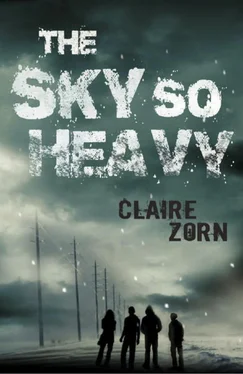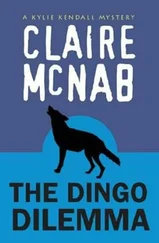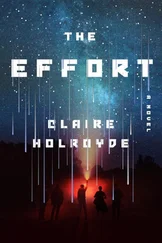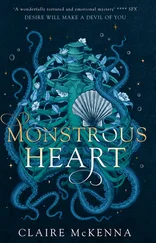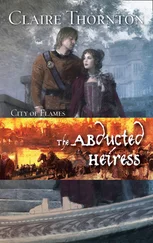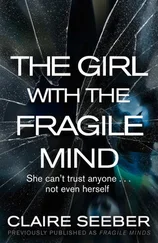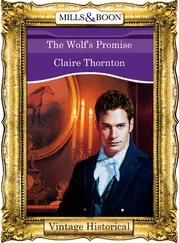‘Why not stay in here instead of the car park?’ asks Max. ‘Way comfier.’
‘I think it’s because there’s more exits from the car park, more places to hide,’ Noll answers. ‘Also, it’s not well ventilated enough for campfires. The place would fill with smoke.’
In the centre of one of the walkways is a piano. It stands like some sort of regal animal among the chaos. Lucy pauses before it, then sits down. She begins to play the first music any of us have heard for months. The notes fill the cavernous space, the sound is luminous. My skin prickles with goosebumps. She finishes the piece and gently closes the lid over the keys. Then she stands and we all just pause there for a minute looking at the piano. It’s made of wood. Lucy’s expression is like she’s watching a beloved animal that has to be put down.
‘We should keep moving,’ I say.
We come to a department store, its roller security doors long since kicked in. We take a trolley and light our way with torches, there’s no skylights inside the store. The electronics section has been gutted: phones, cameras, televisions all gone; bet those people are rethinking their priorities. We go through to the clothing department and pull new clothes from the racks, changing out of our dirty layers on the spot. Then it’s to manchester where there are no blankets left, but plenty of towels. We stock up on fancy soaps and, surprisingly, gift-packaged herbal teas. Finally we find the home furniture department. The ‘Livingstone Nine-Piece’ dining suite is on sale for nine-hundred and ninety-eight dollars. We take turns hacking into it with the axe and then throw its parts into the trolley.
In the evening we sit by our newly fed fire. We have moved our camp closer to Alan so we can share our fire with him. He and Lucy read novels. I draw the scene from the shopping centre. Noll reads his bible.
‘Is this the end of the world?’ Max asks him.
‘I don’t think so.’
‘Why not?’
‘Jesus hasn’t come back.’
‘Serious?’
‘Serious.’
‘You really believe that?’
‘Max,’ I warn him.
‘It’s okay,’ says Noll. ‘I really believe that.’
‘Are you mad at God? I’m mad at God, you know, if He’s real.’
‘I don’t think God did this. People did this. People suck.’
‘Not all people suck.’
‘You don’t think?’
‘Do you think I suck?’
‘Well, we all robbed a guy of food that was rightfully his.’
Alan glances up from his book. I desperately want Noll to shut up.
‘But he had heaps!’ says Max.
‘Doesn’t change the fact.’
‘So you’re saying we deserve this?’ I ask.
‘No. I’m just saying that we’re all flawed. Like I said before, I cling to the knowledge that God is not.’
‘That’s crazy,’ says Max.
‘Perhaps. But do you have an alternative?’ Noll asks.
‘I dunno. I just reckon the idea that everyone is bad deep down is really depressing.’
‘I just… I mean that we have choices. We chose to rob a guy of food that wasn’t ours.’
‘You think we made the wrong choice,’ I say.
‘I’m not some moral arbitrator here just because I read the bible.’
‘You’re the one saying this shit. You were there too, you did it as well.’
‘All I’m saying, Fin, is what you already know.’
‘So, what’s your alternative then, Noll? We should have done the right thing and not stolen – and what? Died noble deaths from starvation? What would that achieve? Would that make the world a better place?’
‘I’m going to use your mantra, Fin: I don’t know… I really don’t. I’m sorry. I don’t mean to… aggravate things. It’s too late anyway, we did what we did,’ he says it so gently that I can’t come back at him. Anyway, I know he’s right, about us.
I leave at first light again, carrying my old friend, the axe, with me. I walk a few blocks beyond the shopping centre. The ground is slick with melted snow. Already there are people around. On one corner a man trades soft-drink bottles full of kerosene for food. He calls out to me, holding a Fanta bottle outstretched.
I round a corner and am confronted by a row of about six houses that have been incinerated. All that is left are blackened frames and piles of charcoal. I walk along the street and see that the fire has partially destroyed two apartment blocks as well. I guess that with no working fire brigade a fire could get big enough to consume everything in its path. A figure stands among the rubble, prodding at the debris with a long stick. Further along, outside one of the unit blocks is an army truck. An officer emerges from the building with a dark shape carried over his shoulder. He dumps it in the back of the truck with others. It’s then that I realise he was carrying a body. Bile rises in my throat and I vomit onto the pavement. The army officer barely gives me or my axe a glance.
The heap of rubbish outside my mother’s apartment building now spills across the footpath and onto the street. A few metres further up the road a woman emerges from a house and dumps a bucket of raw sewage into the gutter. I go into the building, up the stairs. I pound on the door, already resigned to the fact that it is a waste of energy. Then I raise the axe over my shoulder and slug it into the door.
The chaos of the place is so typical of my mother it is reassuring. It’s hard to say if it has been exacerbated in the last few months. I scan the mess for anything that might indicate where she has gone, letters, papers, anything. The lounge and adjoining kitchen offer no clues. I go through to the bedroom. The bed is unmade. Clothes lie discarded on the floor. Her nightstand is cluttered with books and then there, beneath a Stephen King thriller, a pile of papers. I clutch at them, knocking the stack of books to the floor. There are minutes from a university faculty meeting six months ago, car rego papers, travel itinerary for a conference, a library fine. Nothing useful. And then, as I drop the papers onto the bed, one of them slips off onto the floor, landing face down. On the back is scrawled a note: ‘Crisis Response Headquarters, Sydney Town Hall’.
It’s all I have.
Before I leave I go through her kitchen. There isn’t much, but there’s enough food to fill my backpack: Weet-Bix, dried fruit, rice cakes.
I have to walk for a while before I see a bike. It’s chained up (push bikes have become quite the commodity) but I still have the axe and I’m more accurate with it than ever before. The ride into the CBD is surreal. The roads are cluttered with abandoned cars, signs of failed attempts at navigating the icy bitumen. The CBD feels like the empty set of a disaster movie, as if you could push against a wall and have it topple over, nothing more than plywood and styrofoam. Then I come to George Street, where office buildings merge with the main retail district of the city. I pass the Queen Victoria Building, a four-level shopping complex of sandstone, stained glass and nineteenth-century opulence. Nearly all of the large glass store-fronts that line the ground floor have been smashed. You can see where opportunism has gone from the initial smash and grab of luxury handbags and designer clothes to the desperate raiding of cafes for food and wooden chairs to burn.
Across the intersection from the Queen Victoria Building stands Sydney Town Hall. It looks gothic in the half-light; the same sandstone style as the Queen Victoria Building. The paved square between it and St Andrew’s Cathedral further along is crowded with military vehicles, surrounding the escalators that lead from street level down below to what used to be a food court and entrance to the railway. The entire area is enclosed by a high razor-wire fence. Two army officers stand at the gates of the barrier. Another stands at the top of Town Hall’s marble steps, in front of the doors.
Читать дальше
